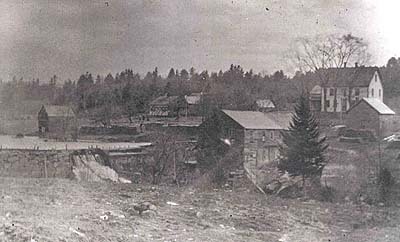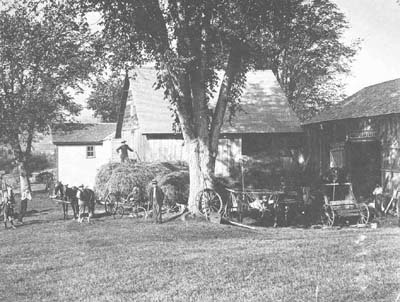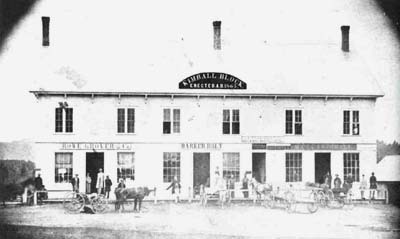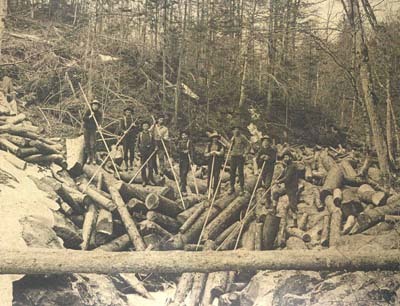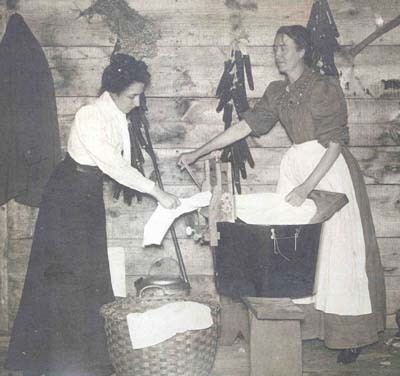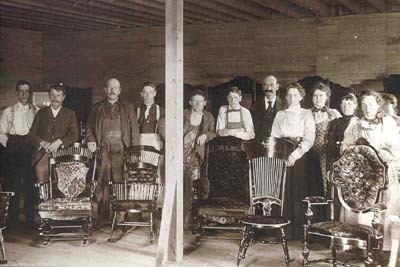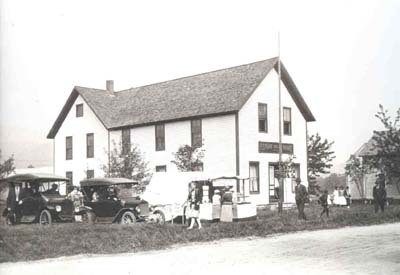All in a Day's Work
The Colonial period settlement of Bethel began with the construction in 1774 by Joseph Twitchell of both a sawmill and gristmill at the foot of Mill Hill (Route 5). Necessities in the founding of most New England towns, these mills were the first framed structures erected in the town. This circa 1890 view shows the Eber Clough birch and stave mill, which later occupied the early sawmill site.
Bean's Corner village (East Bethel), circa 1900. Local photographer Irving Kimball captured this classic farm scene only a couple of decades after Bethel reached the peak of its agricultural production. In front of the "English barn" at right, two horses power a mechanism for threshing oats.
The largest commercial structure in Bethel for many years, the Kimball Block stood from 1865 to 1965 at Bethel Hill near the site of the town's new fire station. In the pre-automobile age, this community, and others like it throughout the Nation, provided a self-contained system of businesses wherein almost every necessity could be purchased locally.
Logging was an extremely difficult and dangerous task before the advent of mechanized transportation, but furnished a winter's occupation and supplementary income for many Bethel farmers. Stimulated by the development of papermaking facilities in several towns downriver of Bethel, log drives on the Androscoggin and its tributaries continued well into the twentieth century.
Women's work in eighteenth and nineteenth century Bethel was often tedious and backbreaking. Few today can imagine the difficulties faced in the never-ending routine of home life during this earlier time.
One of this community's largest nineteenth century industries was the Bethel Chair Company, established in 1886. The firm originally restricted itself to the production of Shaker-type rockers, but a variety of styles were eventually introduced. In 1902, Hiram Ricker (of Poland Spring fame) ordered three hundred chairs for one of his Maine hotels.
Following on the heels of the Farmer's Club movement, the Patrons of Husbandry (Grange) became highly popular throughout northern New England in the 1870s. Such organizations not only provided important social activities for isolated farm communities, but also promoted agricultural education and reform in a more structured manner than previously experienced. West Bethel's "Pleasant Valley Grange #136," shown here, was established in 1875 and still functions today.

